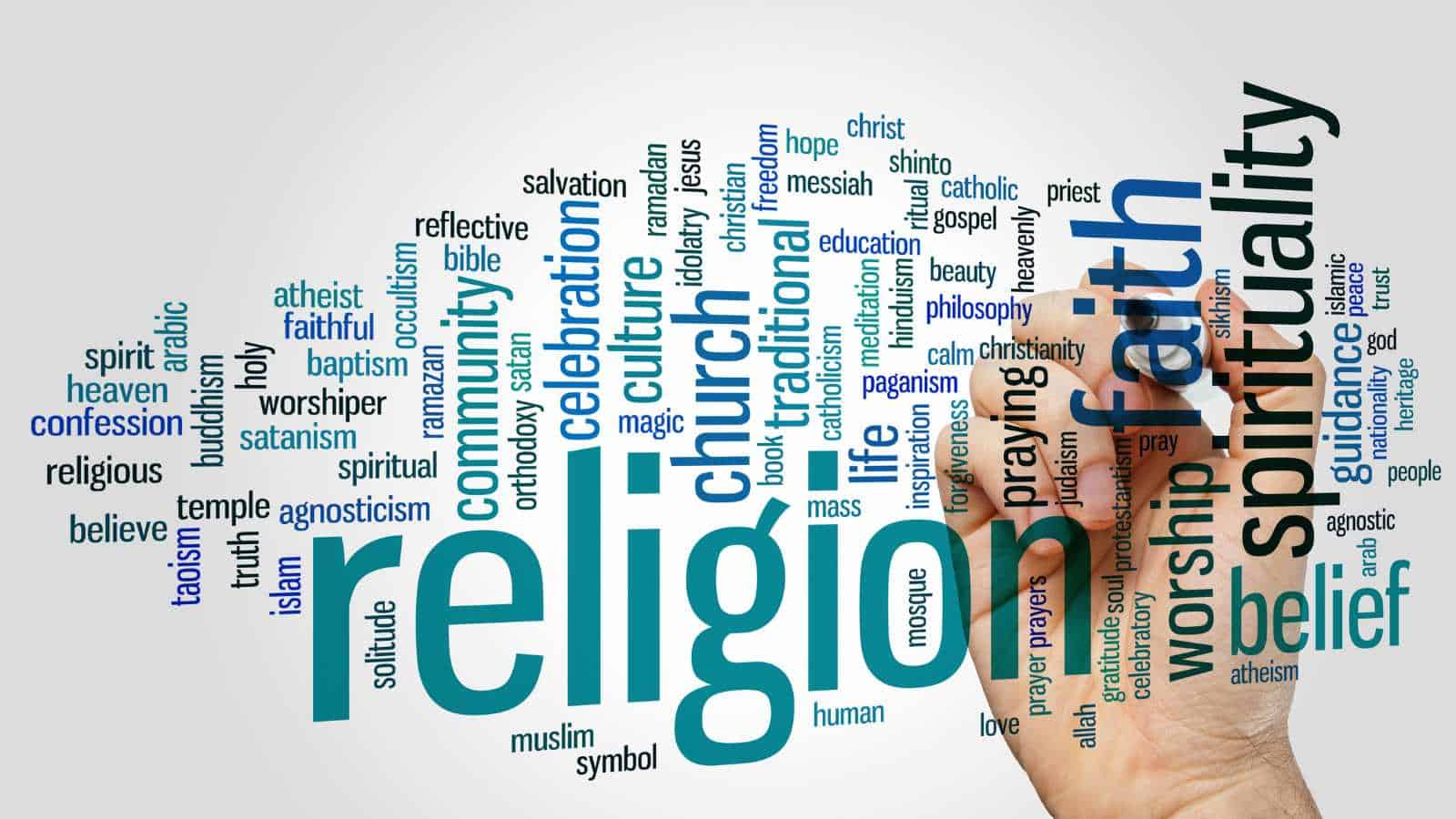13 common misconceptions about Christianity to reconsider
Christianity, with over 2.3 billion adherents, according to the World Population Review, is one of the world’s largest and most influential religions, yet it remains one of the most misunderstood.
In the U.S., 62% of adults still identify as Christian, but only 6% of these church-going Christians hold a consistent biblical worldview, as highlighted by Crosswalk. This gap between identity and belief reveals the widespread misunderstandings about Christianity.
From assumptions about Christianity’s global reach to misconceptions about its compatibility with science and politics, it’s clear that many common beliefs don’t reflect the true diversity and depth of the faith.
So, let’s tackle 13 common misconceptions about Christianity that are in need of reconsideration.
Christianity Is a Western Religion

One of the biggest misconceptions about Christianity is that it is a religion primarily associated with the West. While it’s true that it has deep historical roots in Europe and North America, it originated in the Middle East—in the region now known as Israel and Palestine.
Over the centuries, it spread throughout Europe and beyond, but today, the majority of Christians live in the Global South. In fact, around 67% live in Africa, Asia, and Latin America, according to Christian Daily.
This challenges the outdated idea that Christianity is a Western-only religion and highlights the incredible growth and diversity in regions where it was once considered foreign.
Christianity Is Anti-Science

Another common myth is that Christianity is inherently opposed to science. This misconception has been perpetuated by the “conflict thesis” that suggests religion and science are always in opposition.
However, this narrative oversimplifies history. Many of the pioneers of modern science, including Isaac Newton, were devout Christians who saw their work in science as a way to understand the rational design of the universe created by God.
In the United States, 71% of people believe that God either guided evolution or allowed evolution to occur without direct intervention, as reported by Religion Unplugged. This signals a much more open-minded approach to science among religious individuals than is commonly assumed.
Christians Must Interpret the Bible Literally

While fundamentalist groups might emphasize a literal interpretation, the reality is that most Christians read the Bible in light of historical and cultural context. Christianity has a rich tradition of interpreting scripture with an understanding of its literary styles.
The literal interpretation of the Bible is a relatively modern development, and most Christian denominations—whether Catholic, Protestant, or Eastern Orthodox—emphasize the importance of understanding the context in which the scriptures were written.
The Crusades Represented Christianity’s Core Teachings

Another myth is that the Crusades accurately reflect Christianity’s core principles. The Crusades (1096-1291) were violent military campaigns, often justified as attempts to reclaim Jerusalem from Muslim control.
While they were conducted under the guise of Christianity, the Crusades were more about political power and territorial expansion than the teachings of Jesus Christ. Jesus taught love, peace, and reconciliation, but during the Crusades, soldiers engaged in brutality, slaughtering Muslims, Jews, and even other Christians.
Christianity Opposes Gender Equality

The idea that Christianity is inherently anti-women is a misconception that fails to account for the ways in which Jesus elevated the status of women throughout His ministry.
He spoke with women in public, which was highly unconventional for that time, and even appeared first to women after His resurrection, making them the first witnesses of His triumph over death.
While patriarchal structures have shaped many traditions, there has been a growing movement to advocate for gender equality. Many Christian communities today support women in leadership and promote gender equality in both church and society.
Religion Is About Following Rules and Moralism

While some may see it as a moral checklist, the heart of the faith revolves around a relationship with Jesus Christ, not rule-following. It’s about receiving grace and forgiveness, which inspires a transformed life.
The principles of love, kindness, and justice are meant to flow from this relationship, not as a means to gain favor. The core message is that believers live with gratitude for God’s love, which naturally shapes their actions.
Shifting the focus from rules to grace transforms the way we understand the purpose of faith.
It’s Intolerant, Judgmental, and Hypocritical

While there are certainly examples of individuals who act in judgmental ways. The teachings at the core of this faith emphasize humility, self-reflection, and compassion.
Jesus himself condemned hypocritical judgment and encouraged followers to address their own flaws before pointing out the faults of others. Instead of promoting condemnation, the faith advocates for love and forgiveness.
When the actions of some don’t align with these ideals, it misrepresents the core message. Recognizing the true intent of these teachings helps separate individuals’ actions from the message’s core.
Christians Never Suffer or Struggle

Christianity doesn’t promise a life free from hardship. In fact, Jesus Himself warned His followers that they would face trials and persecutions for their faith. Suffering is acknowledged as part of the human condition and can be a way to grow in faith and resilience.
Christians believe that trials can lead to deeper spiritual maturity and an increased sense of compassion for others.
Worshiping Three Gods (The Trinity Confusion)

The doctrine of the Trinity is often misunderstood. According to the Arizona Christian University, just 62% of adult Americans affirm the doctrine of the Trinity.
Christianity is monotheistic, affirming the belief in one God, who manifests in three distinct forms. This is a mystery, but the Bible makes it clear that all three persons are part of the same essence.
This clears up the misunderstanding and helps people grasp the complexity of the Trinity without confusion.
Religion Encourages Prejudice and Intolerance

The message at the heart of the faith is one of love, acceptance, and inclusion. The New Testament emphasizes breaking down racial, gender, and social barriers and loving others, regardless of their background.
While some religious ideologies have led to prejudice, the true Christian message calls believers to embrace diversity, reject discrimination, and seek unity. This clarifies that the essence of Christian teaching is love and equality, and that intolerance is a misapplication of those teachings.
The Bible Is Full of Contradictions

The Bible spans multiple genres, including history, poetry, and prophecy. Understanding these genres and the historical context in which the books were written resolves most perceived contradictions.
It’s important to approach the Bible with an understanding of these nuances to see that its overall message is coherent and trustworthy. This distinction allows us to appreciate the depth of the Bible. And recognize its internal consistency, even with minor variations in detail.
Bart Ehrman, a renowned biblical scholar, affirms that while minor discrepancies exist, the core message remains intact.
The Bible Must Be Taken Literally in Every Part

While some passages in the Bible are meant to be understood literally, others are poetic, symbolic, or allegorical. The Bible contains a variety of literary genres, and understanding the context and genre of a passage is key to interpreting it correctly.
For example, the creation story in Genesis has been understood both literally and figuratively by different Christian traditions.
All Good People Go to Heaven

Christianity teaches that salvation isn’t earned through good deeds or personal morality. According to Christian doctrine, no one can meet God’s perfect standard of holiness on their own.
Heaven is not a reward for moral behavior, but a gift from God, granted through faith in Jesus Christ and His grace. The idea is that no one, regardless of their goodness, can earn their way to heaven—it’s a matter of trusting in Christ’s sacrifice, not accumulating good deeds.
Conclusion

Christianity is far more complex and diverse than most of the misconceptions we’ve discussed. From its historical origins to its global presence, it is a faith that spans cultures and has adapted to modern challenges.
By addressing these common myths, we can better understand the accurate nature of political alignment or judgment. Next time you hear these myths, you’ll be ready to provide a more informed perspective!
Which misconception surprised you most? It’s time to rethink what we know about Christianity.
Disclosure line: This article was developed with the assistance of AI and was subsequently reviewed, revised, and approved by our editorial team.
13 Common Misconceptions About Living The Christian Life

13 Common Misconceptions About Living The Christian Life
Like any significant belief system, Christianity is often misunderstood, not only by those outside its faith but sometimes even by its adherents. Here, we aim to clarify 13 common misconceptions about Christian life, helping to deepen understanding and appreciation of this faith’s true essence.
13 Things Even Atheists Could Take Away From Reading The Bible

13 Things Even Atheists Could Take Away From Reading The Bible
Whether a devout believer or a card-carrying atheist, the Bible offers something for everyone with its compelling narratives and profound wisdom. Now, you may be thinking, “Wait, I’m an atheist. What could I possibly glean from a book steeped in religious doctrine?” Well, stick around, dear skeptic.







